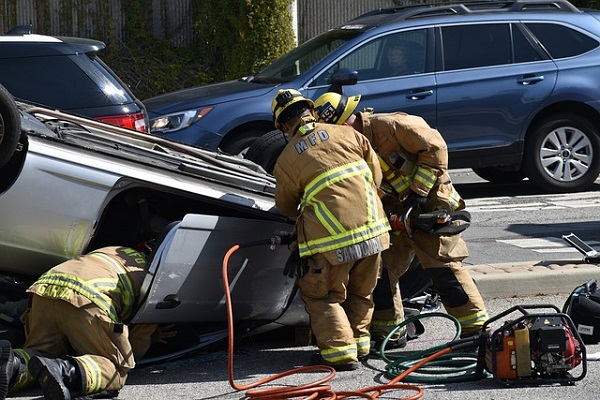If you have ever been involved in a car accident, when you’re at the scene, it can be frightening and overwhelming. The first things you’re thinking about are your safety, the safety of your passengers, and the safety of the people around you.
However, following an accident, if you’re hurt, or you have expenses as a result, you might end up with a legal situation.
That will require evidence. Evidence is important to a car accident claim because, in many cases, you have to prove that the other driver in the accident was liable and that their negligence caused you harm.
Luckily, if you work with an experienced personal injury attorney, they know how to gather and collect evidence, but the following are some of the general things to keep in mind as far as evidence from car accidents.
Evidence at the Scene
This isn’t always possible, but if it is, try to remember to collect as much evidence at the scene of the accident as you can.
You may be disoriented, and your safety and well-being should be your top priority, but if you’re able to wait for the police and get a police report, that can be helpful.
The police report is a key piece of evidence in a car accident claim, which is why you should contact authorities even in the instance of a seemingly minor accident. You never know what might happen in the future.
Other information that you need, if you can get it, includes the contact information for the other people involved in the accident. You’ll want their name, address, plate numbers, insurance information, and their driver’s license number.
If you’re in an accident with someone who’s in a work vehicle or a commercial vehicle, you’ll need their employer’s name and contact information.
If there are witnesses to the accident, get their contact information.
Take pictures of the vehicles and the entire accident scene.
Evidence of Damages
Not all of your evidence in a car accident claim comes from the scene of the accident.
Much of it is from damages.
For example, if your vehicle is damaged, keep all of your records of things like repairs and receipts for car rentals you may need.
Also, it’s helpful if you have records of any work you had done to your car right before your accident. If you had done something that increased its value and then your vehicle is totaled, you might be able to increase the assigned value of your vehicle.
Perhaps even more important than evidence related to vehicle damage is any evidence showing your injuries and the extent of them.
Even if you don’t feel like you’re hurt right away, it’s a good idea to get medical treatment.
This starts to create a paper trail that you may need.
What happens right after an accident is that adrenaline can mask your injuries or pain, so you might not notice there’s an issue until a week or more after the actual accident.
If you get medical care right away, you can uncover issues faster to reduce complications, in addition to compiling evidence.
Every time you go for any medical care or treatment, keep records.
If you lose time from work because of your accident, you want to have the documentation that shoes lost wages and income.
Other Types of Evidence
Beyond what’s above, other types of evidence may play a role in your claim.
For example, there are interrogatories that your lawyer may send both you and the other involved parties.
These are written questions that are answered under oath.
There are also depositions that your lawyer might request. A deposition is done out-of-court and under oath. It’s typically either transcribed or recorded.
These are used to gather new evidence and also as a way to challenge the credibility of witnesses.
The Burden of Proof
Finally, when it comes to evidence in a car accident case, the burden of proof is on the person who was hurt or who sustained damages.
If you’re the plaintiff, it’s up to you to show the defendant behaved negligently, and that led to the accident.
You are also going to have to show that the negligence and the accident caused your injuries.
An attorney is an important part of this process because they know what evidence can be used in court versus what isn’t admissible. For example, while a police report is important, it isn’t always admissible in court.




